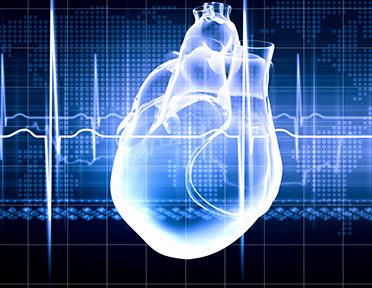
There is new evidence that mutations in p53 contribute to the development of atherosclerotic cardiovascular disease.
These findings “broaden our knowledge of how the acquisition of mutations in blood cells, a phenomenon called clonal hematopoiesis, acts as a cardiovascular risk factor,” said Valentín Fuster, President of Mount Sinai Heart and Physician-in-Chief of The Mount Sinai Hospital, and an author on the report.
The new study, published in Nature Cardiovascular Research, was carried out by a team at Spain’s Centro Nacional de Investigaciones Cardiovasculares (CNIC), working in collaboration with several institutes in the U.S. The project was led by CNIC’s José Javier Fuster.
It’s long been known that age-related clonal hematopoiesis is a common condition and associated with increases in the risk of hematologic cancer as well as all-cause mortality, in part possibly due to an increased risk of cardiovascular disease.
Every day, an adult person generates hundreds of thousands of blood cells, which leads to mutations in the progenitor cells. In particular, acquired p53 gene mutations in these cells increases the risk of developing various types of cancer, including blood cancers. The role of p53 in cancer has been well studied.
Working in collaboration with groups led by Derek Klarin at Stanford University, Pradeep Natarajan at Massachusetts General Hospital, and Alexander Bick at Vanderbilt University, these scientists analyzed sequencing data from the blood cells of more than 50,000 people.
“We found that carriers of acquired mutations in p53 had a higher risk of developing coronary heart disease and peripheral artery disease, and this effect was independent of established cardiovascular risk factors like hypertension or elevated blood cholesterol,” explained José Javier Fuster.
The scientists then conducted functional studies in animal models of atherosclerosis, into which they introduced cells carrying p53 mutations.
They found that mice carrying these mutations developed cardiovascular disease more rapidly, mostly due to an abnormally elevated proliferation rate of immune cells in the artery walls. This work demonstrates that p53 mutations also accelerate the development of atherosclerosis, the underlying cause of most cardiovascular disease, and which is the leading cause of death in the world.
“This combination of observations in humans with experimental studies in animals provides solid evidence that these mutations increase the risk of developing cardiovascular disease,” said José Javier Fuster.
Previous work by the same group had already demonstrated in a 2021 article in The Journal of the American College of Cardiology (JACC) that several of these mutations, such as those that affect the TET2 gene, contribute to the development of cardiovascular disorders like atherosclerosis and heart failure.
Now, “as well as validating that earlier study, our new results extend our findings to include mutations in p53 and the development of peripheral artery disease, a condition that is especially prevalent in the elderly population,” said José Javier Fuster.
The researchers highlight that mutations in different genes contribute to cardiovascular disease through distinct mechanisms. “In the future, this could be exploited to design personalized prevention strategies targeting the specific effects of different mutations,” said CNIC scientist Nuria Matesanz, one of the co-first authors on the study.











